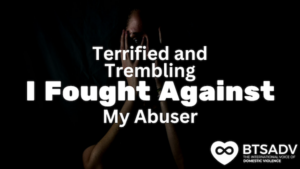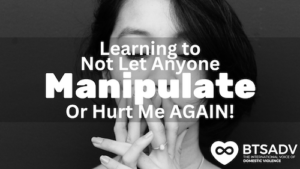On March 22nd of this year, most of us were still wrapping our heads around the fact that the pandemic was still hampering our lives more than a year after the first shutdowns took effect in the United States. Maybe we were looking forward to getting out of the house and enjoying some spring weather, after being trapped inside the previous March and April. Maybe we were getting excited for a full 162-game baseball season to get started. Maybe we were making Easter, Passover, or other holiday plans. Karen Robbins wasn’t doing any of those things.
On March 22nd, Robbins testified in front of the Connecticut General Assembly about a type of financial abuse that often goes unrecognized. While it is uncertain whether her testimony swayed any voted, I think we can all agree that if she wants to take credit for the passage of the bill in question, she has every right to do that. It can be hard to tell your friends and family when you have been abused, physically or financially. It must be agony to bear your soul in front of elected officials; some of whom you know will be ignoring your pleas, and voting against you.
A Different Kind of Financial Abuse
Most of us have at least a general idea about certain types of financial abuse. We can see it when a friend’s husband is controlling every aspect of her monetary freedom.
She may say things like…
“He won’t let me buy it.”
“Oh, I will have to ask him if I can pick up this present.”
“Hopefully he doesn’t see this lunch on the bank statement.”
While we still need to work hard to raise awareness of that type of financial abuse, a different form flies even further below the radar.
Karen Robbins was the victim of coercive debt. Her ex-husband’s use of her name, and her credit (many times without her knowledge or consent) left her with a combined debt of almost $1,000,000. That is an absurd amount of money for a Middle-Class woman to be expected to pay. Still, the fact that she was married to her abuser, he had limitless access to her personal information, and her solid credit. $700,000 of that dept was acquired using the house that is in her name as collateral.
Of course, Karen eventually discovered all of this was happening behind her back, and she filed for divorce. The pandemic, however, stalled many of the proceedings, and nobody would be surprised to find out that her ex isn’t paying the family support, and legal fees he has been ordered to pay. In addition to the debt, lack of payment, and the fact that he ruined her credit score, she can’t even borrow the money she needs to maintain a household. Karen’s ex has lost, and she has been found to have done nothing wrong in a court of law, but none of that matters, because he has so thoroughly ruined her life.
Now, Karen’s abuser continues to have immense control over her, even after the divorce. If she pushes too hard against him, he just doesn’t have to pay what he owes. Our legal system has just handed him all of the cards, after he stacked the deck.
What Legally Can Be Done to Help?
Definitions
Robbins cited a law that was passed in Texas in 2019. That law, according to Robbins’ testimony, “expanded the definition of identity theft to include debt incurred through direct or indirect coercion. By including this language, Texas lawmakers created a clear pathway for victims to clear their names and begin life anew.” This provision was included in the bill when it passed.
Connecticut State Rep. Eleni Kavros DeGraw believes this wording is critical, according to her conversations with Yahoo Money. “The definition really helps courts, advocates that are in the courts, and the judges recognize that we aren’t just looking for bruises when we are looking for signs of abuse in a relationship,”
Without providing a way for survivors to get out from under this debt, they are intrinsically tied to their abusers. This not only makes their financial lives harder, and makes it harder to provide for their families; but it hinders them emotionally, as well. You can’t heal, and move past an abusive relationship, if your day-to-day life is still connected to the abuse and abuser through legal means.
There is no doubt in my mind that over the next few months and years, we will talk about the ways child custody is used in similar ways. Almost every person doing domestic violence work knows at least a handful of women who are being practically held hostage by men who are using the courts and custody laws to exert control over their exes.
Coercive debt puts many women in very similar situations, but there doesn’t even need to be a fight over custody. To use Karen’s situation as an example, she was the one who was on the hook for the debt. He didn’t have to go to court to try to take that control, because that was already the starting point.
The Numbers
Robbins used two incredible (but, unfortunately, all-too-credible) statistics to make her point perfectly clear.
The National Network to End Domestic Violence conducted research in 2018 that would astonish someone who hasn’t experience or doesn’t work in the field of domestic violence. The survey concluded that 94 to 99 percent of domestic violence situations contain elements of financial abuse. That is essentially closer to 100 percent than the margin-of-error in most polls. It would not be hyperbole to state that this research shows that essentially every woman who experiences physical violence in an intimate-partner setting also experiences financial abuse. They are not two different problems; they are two sides of the same coin.
When you flip the script, it doesn’t get much better. It is one thing to see the numbers that show when physical violence is present, you can also expect to see financial abuse. What is even more remarkable is that the 2007 Consumer Bankruptcy Project found that almost 18% “of females married
or living with a partner at the time of bankruptcy filing also reporting domestic violence in the
prior year.”
That statistic is very clear in its wording. It specifically states, “reporting domestic violence.” Obviously, not every family that files for bankruptcy is one that is abusive. Sometimes loving couples face medical bills, unforeseen job gaps, poor financial decisions, or a global pandemic. Still, knowing that not nearly all domestic violence is reported, especially in a way that would make it easy to calculate in this study, makes that 18% number seems astronomical.
Greed Is Not Good
While it is anecdotal evidence, it definitely rings true. A bank or financial institution is not a court of law. These entities exist, in our Capitalist society, to make money. Whether or not you agree with that, is irrelevant. It is the framework under which we have to proceed. Karen testified that she found many banks agreed with her. She was clearly able to show the chain of events that caused the debt. The bank has no interest in correcting the situation. Relief would hurt the bottom line. The bank also has no authority to come down with rulings. It would take going through the courts to officially rule that someone has officially broken the law. Even showing indisputable evidence to a bank that documents contain forged signatures do nothing, because ruling on matters such as these are specifically matters for the judicial system.
Robbins later stated…
“Instead, these companies claim debt amassed through jointly-held credit is the responsibility of both parties, even if one partner had no idea their name was on any given account. The same holds true for credit cards fraudulently opened in the name of one spouse by the other without permission or consent.”
Karen felt that the banks had “revictimized” her through her dealings with them.
“There is one obvious reform that can be made to address this problem. The Assembly should require financial services companies to offer expedited account review and settlement processes to victims of spousal abuse who provide documentation of forged instruments and similar verifiable evidence proving that account access was fully controlled by the abusive partner”.
Credit Needs to Take Some Blame
The way credit scores dominate almost every aspect of our lives can almost be overwhelming. Policies are in place at the credit agencies to prevent them from clearing debt accumulated in the ways Robbins has described. She believes that this also needs to change.
Robins has some great ideas for ways legislation can ensure that credit agencies aren’t able to continue to aide abusers.
“This problem can be avoided by requiring Credit Rating agencies to expedite a review of
all disputed accounts within 30 days and mandating restoration of positive credit scores for all
victims who provide documentation of forged instruments and verifiable evidence that access
to outstanding bank and credit accounts was fully controlled by the abusive partner.”
A Brighter Future
This story does have a good ending. Robbins mentioned the Texas law that went into effect, and this Connecticut bill passed, as well. There are dozens of politicians on the national level who are also fighting for these measures to help all Americans.
Here at Break the Silence Against Domestic Violence, our mission is right in our name. We know that sunlight is the best disinfectant for cases of abuse. Karen Robbins’ testimony, and the resulting changes in actual policy shows that we can make a difference by just speaking our truths.
When Robbins spoke with Yahoo Money, she made a chilling statement. “He always told me that he had the finances covered and would get angry when I asked questions. So, I stopped.”
He silenced her. He stopped her questioning. The abusers will always try to get you to stop speaking out against abuse. Karen showed us why they do that. When we speak out against abuse, we can make change. The name “Karen” has taken on a negative term in the meme world, but here is one situation where it is perfectly acceptable to act like a “Karen.” When that means emulating Karen Robbins, it is just fine.
References for this blog can be found at:









